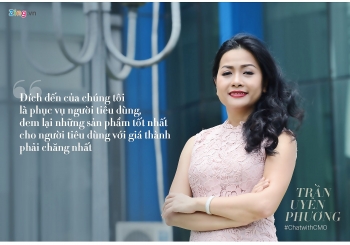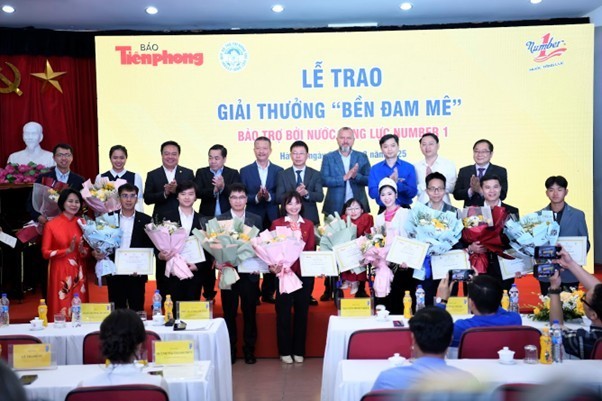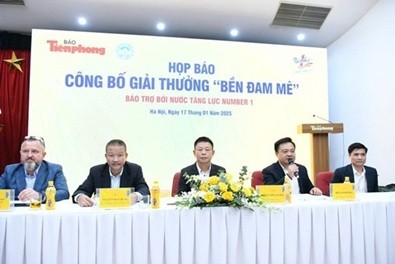Tan Hiep Phat, a global company doing things dirrently but committing it core values
 |
| Phuong Uyen Tran and her father, CEO Tran Quy Thanh of Tan Hiep Phat Group. Photo: Tan Hiep Phat. |
THP — A Global Business Doing Things Differently
Over its 20-year history, THP has invested in several business leading practices. These include creative product strategies in marketing, many masterminded by my father himself, and the use of breakthrough packaging, technology, and software. Dr Thanh Herbal Tea, for instance, required a record 45 days of research and production using aseptic (sterile, preservative-free packaging) technology to bring the product to market, according to Thrive Global.
THP’s innovations also embrace a commitment to sustainability and leveraging great ideas from around the world, mirroring Vietnam’s outward facing approach. In fact, THP continually strives to improve by adopting international standards and processes.
I am fiercely proud of my father and I am convinced that his ability to take risks and view failure as an opportunity to learn — to start again no matter what — has made THP what it is today. (“Great success comes to those who set sail for the sea,” is his refrain. “No success comes to those who stay moored in the river.”) These are the leadership qualities I hopes to emulate as THP strides towards global business status.
It can be helpful for businesses investing in Asian markets to deeply understand its cultural nuances and values. Many of these are steeped in the Confucian ideals of respect, honor, and accountability. Personal relationships are highly valued.
These values underpin THP’s success and are deeply engrained in the company culture. Collaboration and creating an Asian family culture that gives back to society is deeply entrenched in the company’s ethos. All stakeholders are treated with equal care and respect, from customers to employers.
Our family has its own personal mission for the business: “Share a culture of leadership, integrity, commitment, and talent so we can build a global business that creates wealth, enhances our family’s reputation, and makes a positive impact on society.”
I believe one of THP’s biggest competitive advantages over global business advantages is its long-standing and inclusive relationship with its diverse chain of suppliers, from Vietnamese farmers to international vendors and research firms.
We always try to ensure we are maximizing these relationships. We cannot innovate without them. There are so many benefits to strategic supplier collaboration. With employees, THP empowers them to realize their capabilities by creating opportunities and fostering a community spirit. Employees are viewed as “family members” and encouraged to equate helping others with personal success. It’s a view vastly different from the self-motivated approach in the West.
One individual can change the world, but when a group of individuals work together, the impact is magnified for good or for ill. Employees all over the world are also more motivated if they feel they are working for something bigger than themselves. If someone has a sense of belonging, he or she is not only far more likely to go the extra mile but also work with others to achieve it.
The difference in THP’s approach is illustrated by the way it sets its employee pay. The company’s seven core values are a priority benchmark, which means that an individual’s performance is based not just on hitting financial targets but other attributes. These include having a positive attitude, being honest, helpful, hardworking, and customer focused.
This mindset of seeing values beyond the bottom line is another of the leadership qualities Phuong and THP offer to other businesses as a key to their success.
Local Companies: Society's Foundation
The multinational approach has its advantages, but this does not mean that globalization is a bad thing. Opening up trade borders tends to open up minds as well, and that is good thing. I personally see myself as both citizen of Vietnam and a global citizen. I do not believe these two identities are in conflict. Both identities give meaning to my life and help me fulfill THP’s mission as a major player in the global FMGC (fast moving consumer goods) sector.
But globalization needs a different slant. Perhaps its benefits are best realized when particiants stay genuinely grounded in the local economies they operate it. For me, a local business means an independent business and often a family-owned one. These business try to honor the needs and interests of all stakeholders at the same time as building long-term profitability.
Communities are healthier and more sustainable if they are supported by local businesses, which have a tangible stake in their success. It creates a virtuous circle, resulting in higher living standards and greater personal accountability for the long-term wellbeing of our communities and the environment we all have a stake in.
Multinationals often claim they are committed to building prosperity right where people live, and they make a big pint of aiming their Corporate Social Responsibility (CSR) budgets locally. But the reality is often very differnent from the rhetoric.
Consumers are starting to see through this. The relationships and asscociations they tend to value most are local – although when countries enter the first stage of rapid industrialization that can get lost for a while.
There is generally a stage in a country’s early development when consumers are overawed by foreign brands. They want to display their new wealth by demonstrating they have the ability to buy expensive foreign goods. It sets them apart from other citizens who have not yet reached that income level.
China was a great example of this during the first decade of the 21st century with its lines of eager shoppers hoping to buy the latest Gucci handbag or Apple iPhone but China started to enter a new stage of development around the mid- 2010s. This was the point when home grown company have moved far enough up the value chain to produce well-known brands of their own. As a result, Chinese customers have started trusting their own brands and have become clearly proud of them. They are just as likely to buy a Huawei smartphone as an Apple One.
 |
Vietnam has followed a similar route but a couple of decades later than China because of the war, which stymied the country's development. However, as will become clear throughout this book, Vietnam is the country with geographical divide. Northerners are far more likely to be transfixed by foreign brands than Southerners. They are far more status-conscious and rely on referrals.
Statistics also show that while people embraced the benefits of globalization, they also want to preserve their identities and traditions. The world maybe flatter but does not mean globalization is making everyone the same. Local traditions are becoming more important, not less.
This paradox often demonstrates itself in a preference for buying local brands, particularly in the fresh fruit category. This is certainly not that surprising on health grounds. Consumer preference for locally sourced produce holds true for nearly every fresh-food categort and is most clearlt expressed in highlt perishable food categories such as seafood, dairy products and fruit juices.
In Western countries the wheel really has come full circle. In the 1960's and 1970's, many consumers abandon local markets and independent traders to shop in supermarkets where there was a lot more choice and everything had fancy packaging. At the higher-income bracket, that trend is not reversing consumers are flocking to re-brand “farmers’ markets”.
They patronize them because they believe the products are freshener and they are helping the environment by buying products grown locally. But there is also financial motivation. Consumers want their money to end up in local farmers’ pockets and not those of supermarket giants they believe a trying to wring every last ounce of profit from their supply chains.
THP understand this and commitment to the community is one of our seven core values. Throughout this book, you will hear a lot of mention of the company’s core values. The whole company is built around them, and posters of these values are prominently displayed in every work area.
We strive to ensure out employees live and breathe them everyday. Each employee can cite the THP values by heart. These values are often the woven into the songs they compose and sing when we celebrate the company's anniversary each year. They are kind of measures that enable companies to develop cohesive corporate cultures.
| About author Phuong Uyen Tran Working as a powerful businesswoman, Forbes published author, Phuong Uyen Tran is a model of success in Vietnam. Phuong Uyen Tran is also a special contributor for Vietnam Times. Her writing, including “Competing with Giants" book, and her latest articles are to advise and inspire young people to start-up, overcome challenges and reach out to the world. It is the story of a little girl taking the great responsibilities for a corporation and devoting herself to society. |
 | THP's employees realize the importance of risk taking and self-improvement through failure "We try to encourage THP employees to understand that failure is all around us, and there is no reason to be afraid of it. It ... |
 | Employees encouraged to show constructive disagreement in many ways at THP Tan Hiep Phat Group Deputy CEO Phuong Uyen Tran said the group have spent lots of time reaffirming that Dr.Thanh is not interested in "yes" ... |
 | Two main reasons for Vietnamese to find teamwork particularly difficult Phuong Uyen Tran, Tan Hiep Phat Group Deputy CEO, gave two main reasons why Vietnamese find teamwork particularly difficult. |
Recommended
 Women in Business
Women in Business
First-ever Conference for Women Peacekeepers to take place in New Delhi from Monday
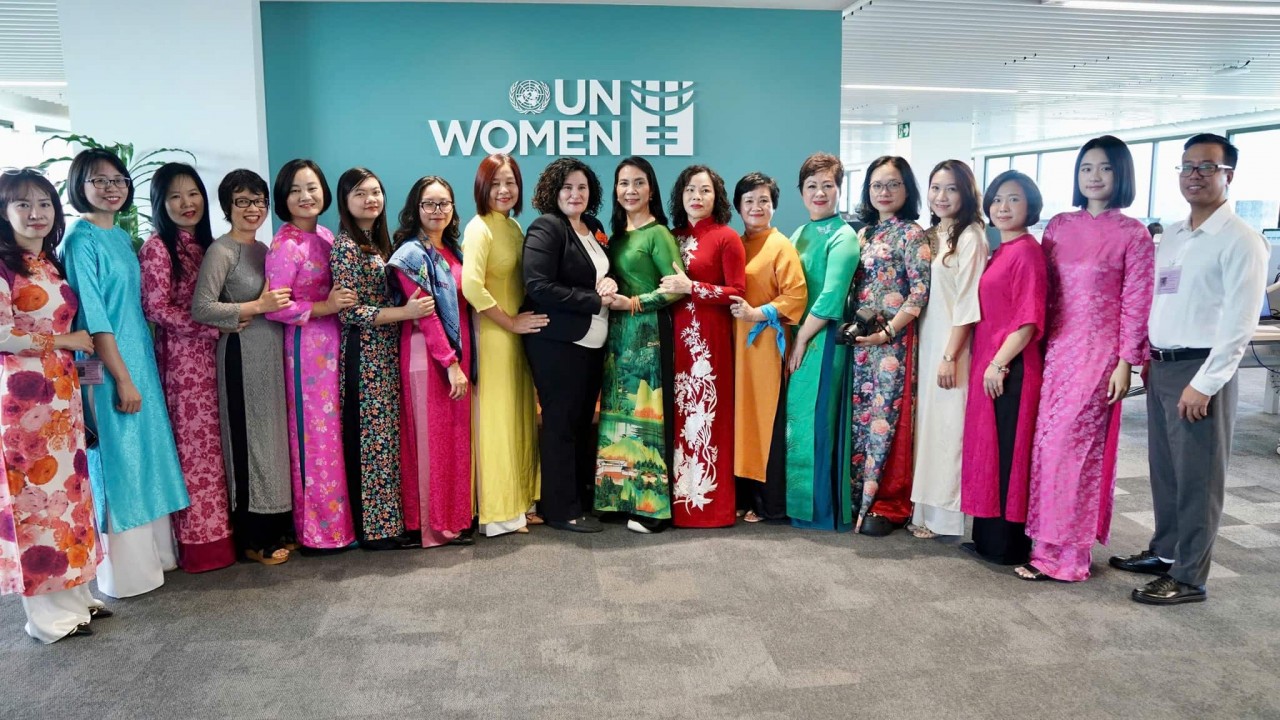 Women in Business
Women in Business
Promoting Gender Equality and Women-Led Businesses through International Collaboration
 Women in Business
Women in Business
What is the factor that helps Number 1 Soya Calcium maintain its appeal?
 Women in Business
Women in Business
Inner Health, Outer Glow: The Modern Woman's Guide to Beauty
 Women in Business
Women in Business
“Amplify” inner beauty and outer sparkle with Number 1 Soya Calcium
 Women in Business
Women in Business
Remarkable Willpower of a 9X Man who Conquer Destiny to Spread Love
 Women in Business
Women in Business
Story of "Swimmer" Nguyen Thi Sa Ri's Will to Live
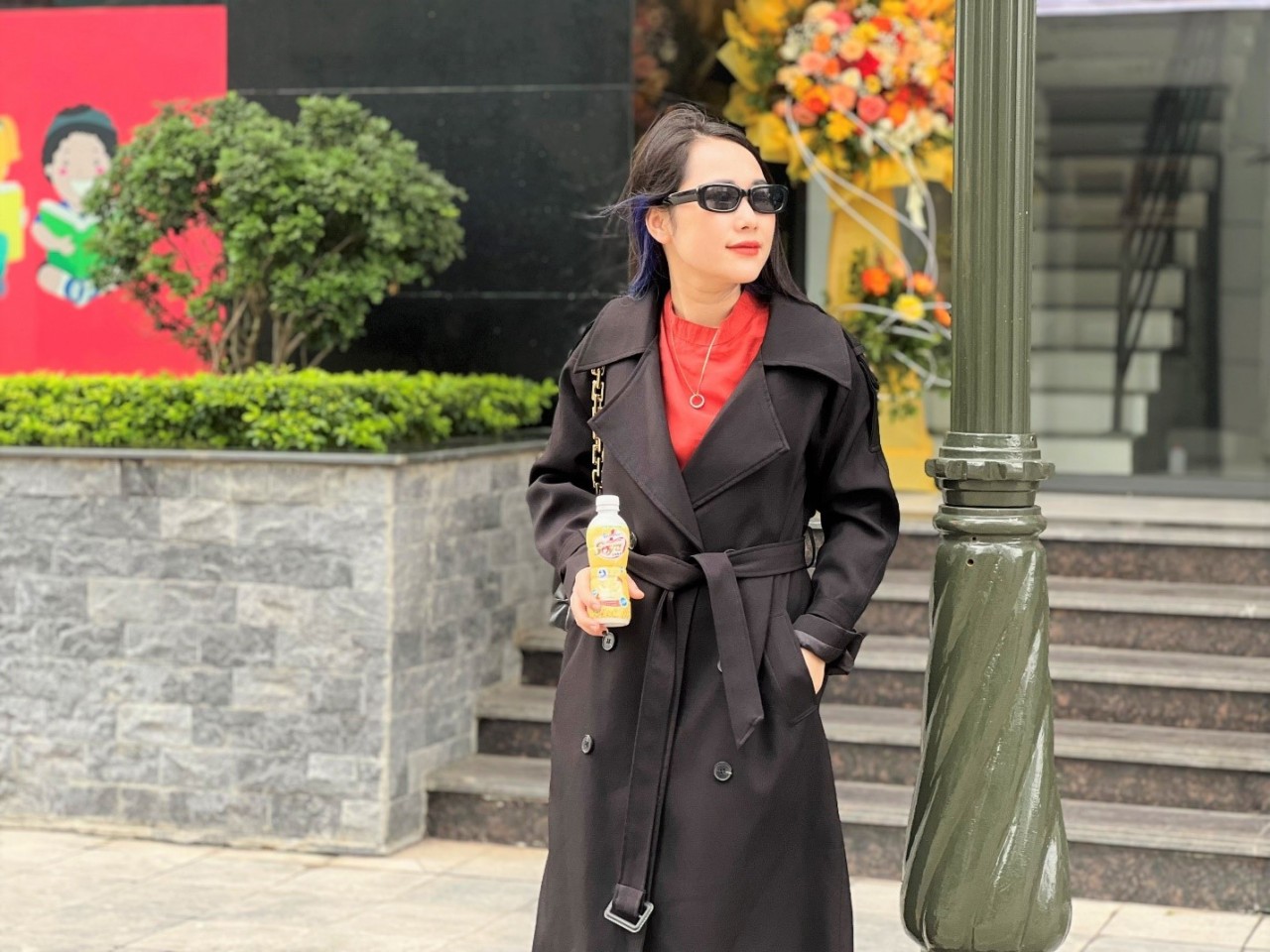 Women in Business
Women in Business

